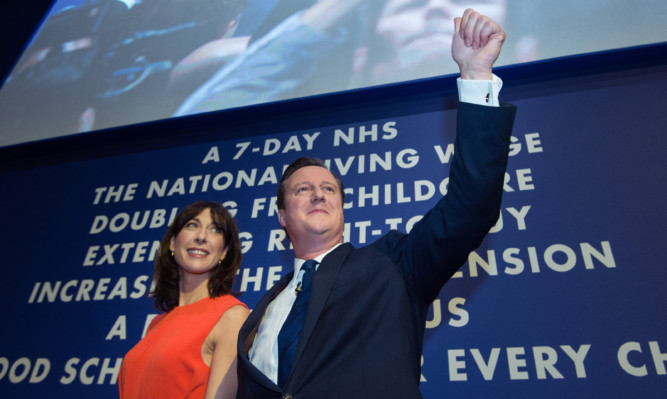David Cameron has set out his vision of a “Greater Britain” as he vowed to spend the second half of his 10 years in power taking on the country’s deepest social problems – poverty, lack of opportunity, discrimination and extremism.
The Prime Minister said he would end the “passive tolerance” of the promotion of extremist ideas, promising to shut down Muslim madrassa schools which teach children hatred and intolerance.
And he said he would stand up for the British values of “freedom, democracy and equality”, telling activists at the Conservative Party conference in Manchester that he wanted to see “less Britain-bashing, more national pride”.
In his keynote speech to the first conference since the Tories’ general election victory in May, Mr Cameron made clear he wants the party to occupy territory vacated by Labour as it moves to the left under Jeremy Corbyn.
Labour under Mr Corbyn had “completely abandoned” the principles of strong defences, sound money, an enterprise economy and equality of opportunity, leaving the Conservatives “the party of working people, the party for working people – today, tomorrow, always”, he said.
And he won loud applause as he told activists: “We cannot let that man inflict his security-threatening, terrorist-sympathising, Britain-hating ideology on the country we love.”
Mr Cameron – who confirmed his plan to step down by the election scheduled for 2020 – said he wanted his time in power to be seen as a “turnaround decade” when the UK not only sorted out its economy but dealt with entrenched social problems.
He set out plans to improve social mobility, reform prisons and improve the chances of children in care, as well as spelling out details of his plan to allow the construction of affordable homes for purchase as he seeks to help young people get on to the first rung of the housing ladder.
He said Tories should be proud of their journey as a “modern, compassionate, One Nation Conservative Party”, as he listed the women, children of immigrants and working-class MPs who now sit in the Cabinet and on the party’s benches in Westminster.
And he cited not only the troops of the First and Second World Wars, but also the Suffragettes and Gay Pride militants among those who had fought to secure Britain’s freedoms.
“Over the next five years we will show that the deep problems in our society – they are not inevitable,” said Mr Cameron.
“That a childhood in care doesn’t have to mean a life of struggle. That a stint in prison doesn’t mean you’ll get out and do the same thing all over again. That being black, or Asian, or female, or gay doesn’t mean you’ll be treated differently.”
He called for “a Greater Britain – made of greater expectations, where renters become home-owners, employees become employers, a small island becomes an even bigger economy and where extremism is defeated once and for all.”
